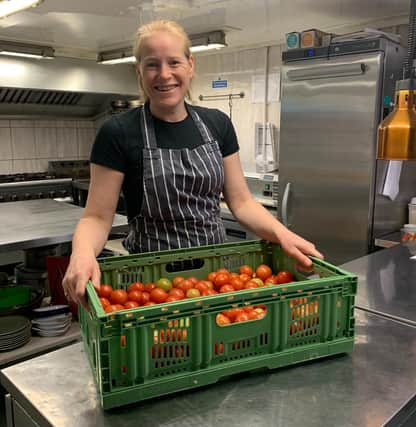Allanton Inn owner tells how we can all cut down on food waste


As COP-26 drew to a close, she expressed her concerns on food waste, and how they approach it as a local establishment.
She said: “Reducing food waste is a good idea, but it’s quite a challenging thing to do. The first thing from our point of view as a business, is cost. You’ve purchased food and you don’t want to be throwing that away. Secondly, it’s storage. We don’t have the capacity to store food waste, so it’s about having tight controls in place.
Advertisement
Hide AdAdvertisement
Hide Ad“But the bigger thing is the environment. It’s about where the food waste is going because you don’t want it going to landfill. Food waste needs to be reduced, and it’s a big issue because it’s quite challenging as to how that can be done.”
The Allanton Inn prides itself on using local produce for the meals served in the restaurant.
Katrina explained: “All of our local suppliers, particularly our small producers, are all straight from the farm.
“All of our eggs, meat and pork products are delivered from farms just a few miles away and they only do small rounds of deliveries.
Advertisement
Hide AdAdvertisement
Hide Ad“The deliveries that we do get on big lorries, we try to reduce them to once a week. But generally, using local suppliers means the food hasn’t travelled many miles to get to us.”
Katrina explained some of the measures they take to prevent food from being wasted.
She said: “The food waste we have is so minimal, it’s really just the things that you can’t eat.
“Occasionally, there’s bruised produce. If we have bruised fruit or vegetables that we can’t serve to customers, we will turn them into soups or chutneys. We also make jams if there is any fruit that can’t be served.
Advertisement
Hide AdAdvertisement
Hide Ad“I’m quite happy with the level of food waste that we have. Being involved in the business and having a family of my own, any products or food that looks like it’s not going to be used within the business, I take home for us to eat.”
In terms of climate change, throwing out food is a big problem. But as Katrina points out, if you manage things properly, it’s easier than you’d think to cut down your food waste.